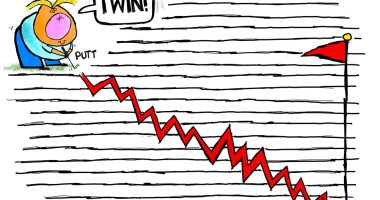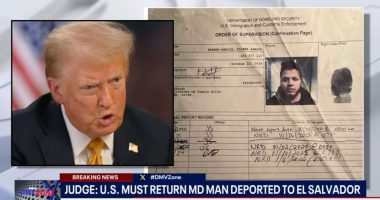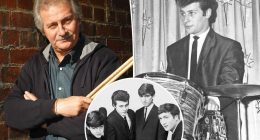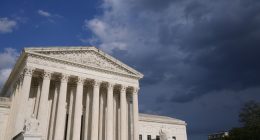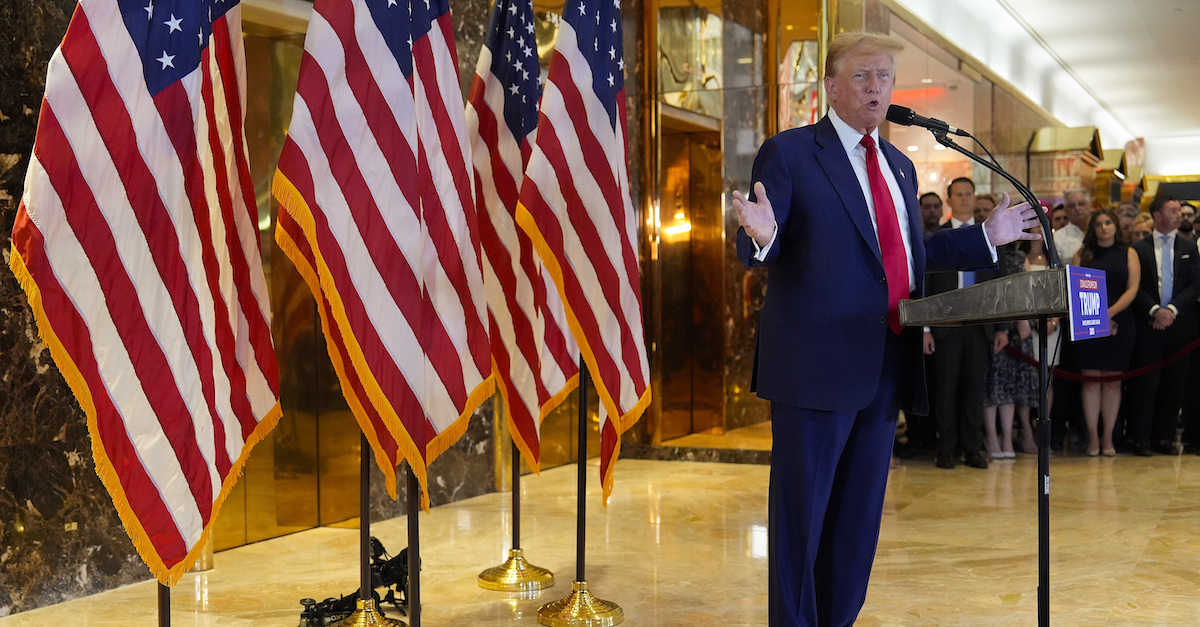
Former President Donald Trump speaks during a news conference at Trump Tower, Friday, May 31, 2024, in New York. A day after a New York jury found Donald Trump guilty of 34 felony charges, the presumptive Republican presidential nominee addressed the conviction and likely attempt to cast his campaign in a new light. (AP Photo/Julia Nikhinson)
During a Friday press conference at Trump Tower reacting to his Manhattan convictions on 34 felony counts, former President Donald Trump attempted to explain why he did not testify in own defense at his hush-money trial, claiming that doing so might have opened himself up to a perjury lawsuit. There’s just one problem: Perjury is a criminal offense in New York and at the federal level, as Trump’s former fixer Michael Cohen knows.
Trump’s defense rested its case last week without calling the former president to the witness stand, despite the defendant’s public insistence that he “would testify, absolutely.”
Earlier in May, Trump falsely said that even though he wanted to testify he couldn’t because of a gag order that Acting New York Supreme Court Justice Juan Merchan issued in the case.
“I want to stress to Mr. Trump: You have an absolute right to testify at trial,” the judge made a point to clarify, citing the Constitution.
Still, Trump attributed his non-testimony (which is his right under the Fifth Amendment of the Constitution) to rulings by Merchan “that make it very difficult to testify.”
“Anything I did, anything I did in the past, they can bring everything up, and you know what, I’ve had a great past—but anything,” Trump said previously, claiming that Manhattan DA Alvin Bragg (D) had “no case” against him.
At Friday’s presser, Trump repeated that line of thought but took it a step further, saying that a perjury lawsuit would be a threat had he taken the stand and said it was sunny outside when it was raining.
“I would have testified. I wanted to testify. The theory is you never testify because as soon as you testify — anybody — if it were George Washington, don’t testify, because they will get you on something that you said slightly wrong and then they sue you for perjury,” he said. “But I didn’t care about that, I wanted to.”
Trump: I wanted to testify. The theory is, you never testify. As soon as you testify, anybody, if it were George Washington, don’t testify, because they will get you on something you said slightly wrong and they sue you for perjury. pic.twitter.com/DeY4W3AyMD
— Acyn (@Acyn) May 31, 2024
“But the judge allowed them to go into everything that I was ever involved in — not this case. Everything that I was ever involved in, which is a first,” Trump said. “In other words, you could go into every single thing that I ever did — ‘was he a bad boy here, was he a bad boy there?””
“I would have loved to have testified. To this day I would have liked to have testified, but you would have been — you would have said something out of whack like it was a beautiful sunny day and it was actually raining out,” he said.
While the decision by Trump and his team not to testify did make legal sense under the circumstances — even as he said outside of court that he’s a “very innocent man” — citing fears of a perjury lawsuit as a reason not to testify simply does not hold water.
Have a tip we should know? [email protected]


